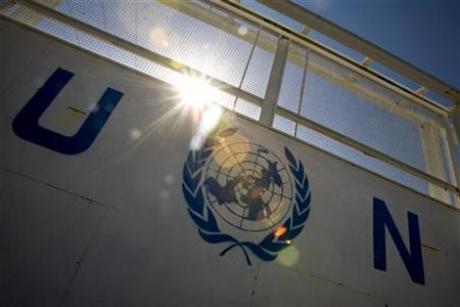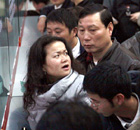Asia-Pacific
Fired Afghan envoy starts legal action against UN
(Agencies)
Updated: 2009-12-18 11:27
 |
Large Medium Small |
|
 A view of an entrance of the United Nations multi-agency compound near Herat, Afghanistan, November 5, 2009. [Agencies] |
UNITED NATIONS: The former deputy UN envoy to Afghanistan, US diplomat Peter Galbraith, said on Thursday that he has launched legal action against the United Nations for firing him without any justification.
UN Secretary-General Ban Ki-moon dismissed Galbraith in September after the veteran US official publicly accused his boss, Norwegian diplomat Kai Eide, of playing down reports of widespread fraud in an August presidential election.
Ban gave no explanation at the time but issued a statement thanking Galbraith "for his hard work and professional dedication" and recognizing his "important contributions to the work of the (UN) mission." It said that Ban made the decision to sack Galbraith in the best interest of the United Nations.
"I want accountability," Galbraith told Reuters in a telephone interview. "I was dismissed for no reason at all in circumstances where I was simply doing what everybody would understand should have been my job - trying to support the holding of honest elections in Afghanistan."
It is virtually impossible to sue the United Nations in standard courts but there are internal legal avenues within the United Nations system to resolve employment disputes, avenues that Galbraith said he would pursue. A UN spokesman confirmed that Galbraith had initiated legal proceedings.
He also dismissed a New York Times report that cited UN officials as saying that he had proposed involving the White House in a plan to replace Afghan President Hamid Karzai in the wake of August elections that were riddled with fraud.
Galbraith did not deny he had supported such an idea. He insisted, however, that it was not only constitutional but had been raised by Eide in a meeting with diplomats.
"In October Kai Eide himself proposed that Karzai should be removed," he said. "It requires a lot of chutzpah for him to (allege) that I was proposing he be removed, when he proposed it, not internally, but to the diplomats assembled in Kabul."
The UN press office had no immediate response when asked about Galbraith's allegation regarding Eide.
He also pointed to what he described as the dubious legality of Karzai's mandate in the autumn. Karzai's term had expired in May and was extended until August by the Afghan Supreme Court to avoid a power vacuum.
"Karzai's term was over," Galbraith said. "We had internal discussions about what to do, how to avoid a constitutional crisis."
UN officials, speaking on condition of anonymity, had a different version. They said that what Galbraith was advocating was tantamount to a coup and was roundly rejected by Eide, other senior UN officials and the United States.
"He (Galbraith) publicly advocated for nonconstitutional regime change in a country to which he had been posted," a UN official told Reuters.
US State Department spokesman Robert Wood said the United States never encouraged discussion of alternatives to Afghanistan's constitutional electoral process although he noted that many ideas had been floated by various officials.
The UN officials said the proposal, which infuriated Karzai, played a role in Ban's decision to sack Galbraith, who was known to be close to US special envoy to Afghanistan and Pakistan, Richard Holbrooke.
Galbraith said the United Nations had been embarrassed by his public denunciations of the fraudulent Afghan elections and was now trying to "change the subject." He also pointed to repeated public praise of him by senior UN officials after he mentioned to Eide in September that Karzai could step aside.
"Let's be real," he said. "Would they have made those statements ... if I'd been proposing a coup?"
Eide, who has faced accusations of ineffectivness and playing down voter fraud, plans to leave his post early next year. His two-year term ends in March.












